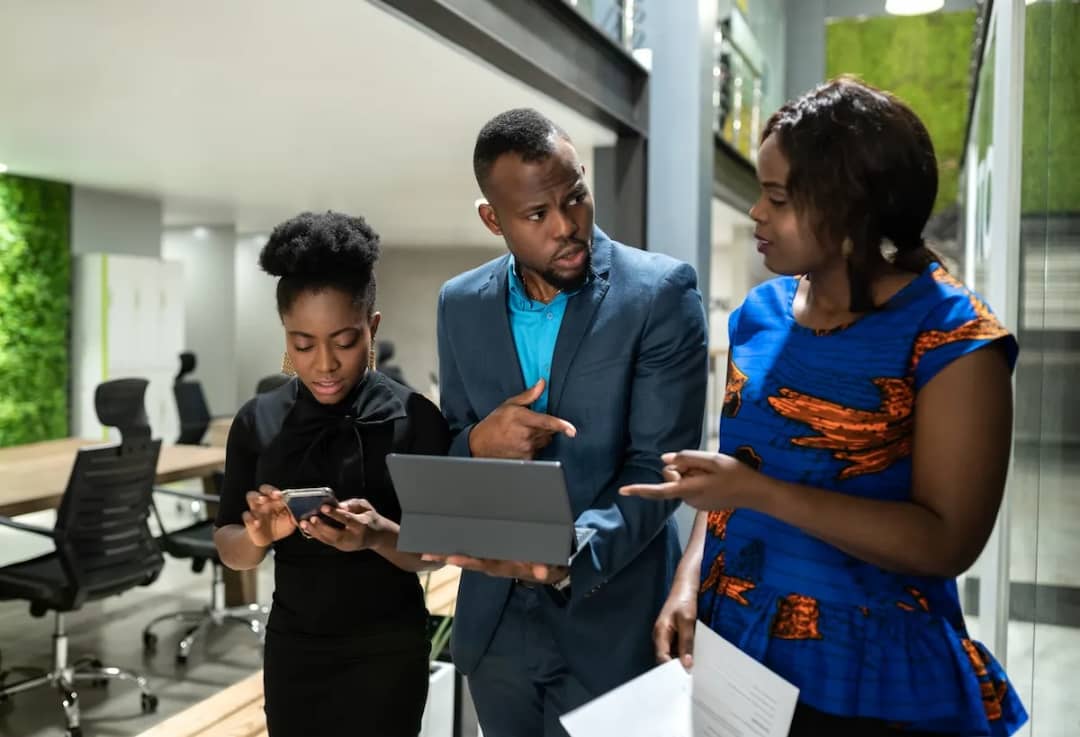TechForward Policy Fellowship: Dr. Folashade Soule unpacks Africa's path to digital sovereignty
In a continent increasingly defined by its digital aspirations and geopolitical awakening, the closing keynote of the Spring 2025 TechForward Policy Fellowship featured a powerful and insightful address by Dr. Folashade Soule, Senior Research Associate at the Blavatnik School of Government, University of Oxford.
Speaking to a virtual audience of 20 policy fellows that was selected from over 1000 applicants across the African continent who are technocrats, digital rights advocates and multilateral partners, Dr. Soule’s webinar titled “Rethinking Sovereignty: Africa’s Emerging Digital Futures” marked a compelling end to a landmark fellowship program.
Organised by the Africa Center for Digital Transformation (ACDT) in collaboration with the United Nations Development Programme (UNDP) Headquarters, the Internet Society Ghana Chapter, and the Innovation for Policy Foundation (i4Policy), the TechForward Policy Fellowship has become a flagship platform for grooming a new generation of digital policy leaders across the African continent.
In her address, Dr. Soule challenged conventional paradigms of digital sovereignty, urging African states to transcend the narrow lens of state control and instead pursue sovereignty that centers human development, ethical innovation and regional solidarity.
“Africa’s digital sovereignty must be about more than infrastructure or data localization,” Dr. Soule asserted. “It must also be about epistemic justice, ensuring that African voices shape the standards, narratives and governance models that underpin our digital ecosystems.”
Drawing on case studies from Nigeria, Kenya, South Africa and Rwanda. She highlighted the tensions between regulatory ambition and implementation capacity, emphasizing that digital sovereignty must be both context-aware and citizen-driven.
She cautioned against the mere replication of foreign regulatory templates, advocating instead for hybrid approaches that blend indigenous knowledge systems with emerging global digital norms.
Her remarks landed in a policy environment fraught with critical questions of how should African governments assert control over data generated within their borders? What role should regional bodies like the African Union play in harmonizing digital laws? How can African innovation ecosystems remain competitive without compromising on digital rights?
Fellows of the 2025 cohort, drawn from ministries of ICT, startups, academia and civil society across 15 African countries engaged Dr. Soule in a spirited dialogue on policy dilemmas ranging from cross-border data flows to the political economy of platform governance.
Her responses were unflinchingly honest: “There is no silver bullet. Sovereignty in the digital age is messy, negotiated and deeply political.”
The recent continental call for a “pan-African digital constitutionalism” in the Africa Union space resonated with the program’s broader ambition to build a new cadre of policy leaders who understand the transformative power and the fragility of Africa’s digital present.
According to Ms. Evelyn Kwarteng, Director of Programs at ACDT, “Dr. Soule’s keynote webinar offered both a sobering reality check and an inspirational framework.
She reminded us that digital sovereignty is not a finish line, it’s a process, a set of choices, and above all a collective endeavour.”
As the Spring 2025 cohort graduates and prepares to implement their capstone projects, Dr. Soule’s intellectual charge serves as a rallying cry. In an era where Africa must assert its place not as a passive consumer but an active architect of the digital age, her insights offer more than policy advice, they offer a roadmap to reclaiming agency.
Africa’s digital future, as Dr. Soule eloquently put it, “is not waiting to be discovered, it is waiting to be designed.”
The Views, Comments, Opinions, Contributions and Statements made by Readers and Contributors on this platform do not necessarily represent the views or policy of Multimedia Group Limited.
The Views, Comments, Opinions, Contributions and Statements made by Readers and Contributors on this platform do not necessarily represent the views or policy of Multimedia Group Limited.










